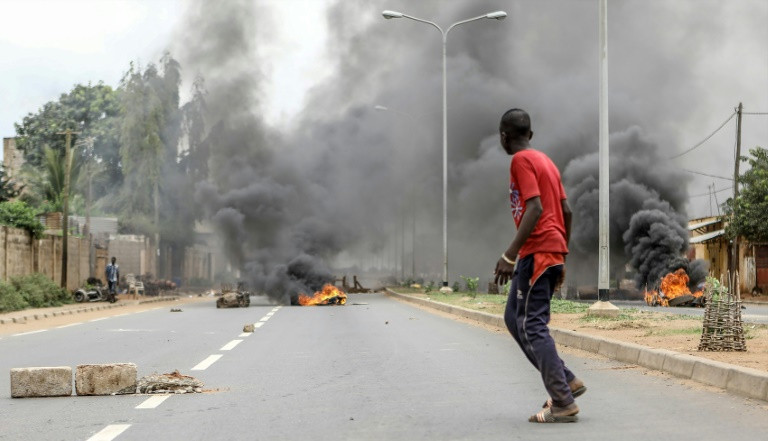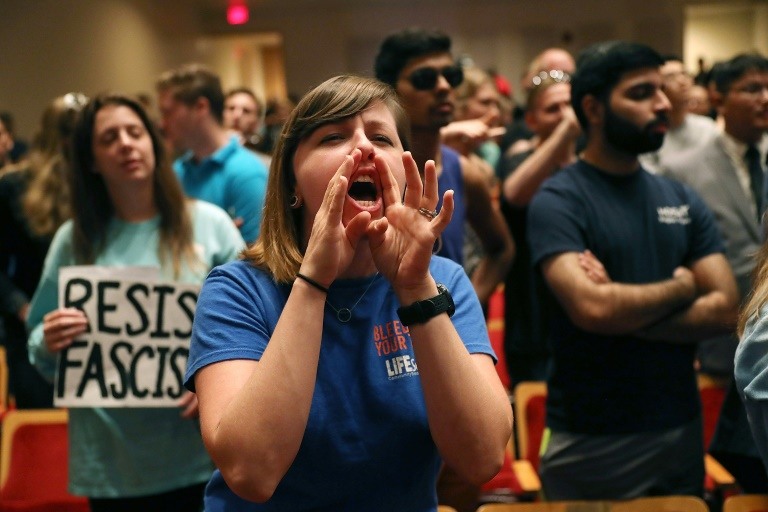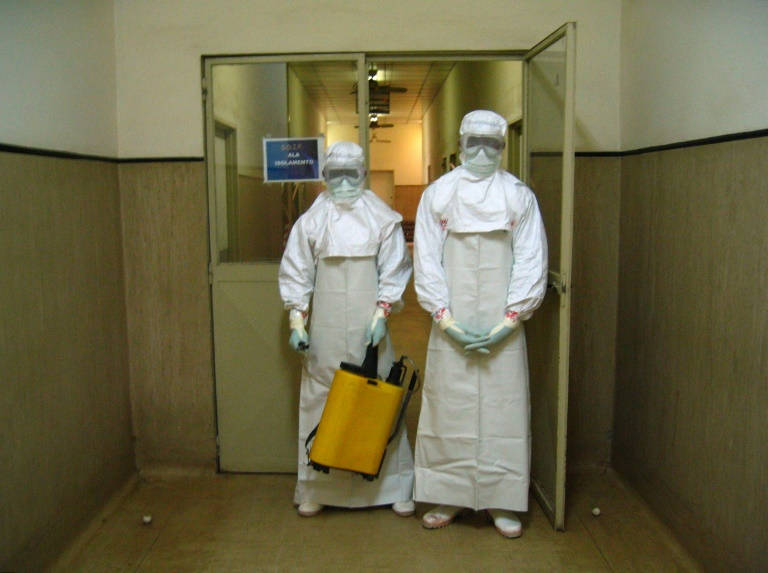
Kenya's polls chief cast doubt Wednesday on his organisation's ability to hold a credible vote next week, as opposition leader Raila Odinga vowed to disrupt the election with mass protests.
In the latest bombshell to hit the presidential election, Independent Electoral and Boundaries Commission (IEBC) chief Wafula Chebukati laid bare internal divisions and accused both major parties of interference.
His no-holds-barred statement in which he slammed the "arrogance and narcissism of our political class" came just hours after another commissioner announced she had quit after fleeing to New York in fear for her life.
"Let me be very clear that this is a yellow card to both sides. I will not tolerate the interference in the commission anymore," said Chebukati.
"Political leaders who are supposed to build the nation have become the greatest threat to the peace and stability of the nation."
Kenyans are due to go to the polls on October 26 for a second time, after the Supreme Court last month overturned the result of the initial election due to "irregularities" in the counting process, and mismanagement by poll officials.
The ruling was a rare victory for veteran opposition leader Raila Odinga, who claimed the poll was rigged in favour of President Uhuru Kenyatta, and seen as a sign of Kenya's mature democracy and institutions.
However the decision has been followed by acrimony, legal battles and confusion over how to carry out a new election that would be accepted as credible, within a constitutionally mandated 60-day period.
Odinga last week announced he was withdrawing from the race, arguing the move would legally force the IEBC to begin the whole process from scratch, which would allow more time for deep reforms.
However, the commission has pushed forward with plans to hold the election.
On Wednesday Odinga addressed a rally of thousands of supporters, vowing there would be "no election" on October 26.
"Protests will go on, on the 26th (there) will be the biggest demonstrations in the whole country," he said.
- Election 'mockery' -
In a statement announcing her resignation as one of seven IEBC commissioners, Roselyn Akombe said that the panel could not provide a credible election.
"I do not want to be party to such a mockery to electoral integrity," she wrote.
In an interview with the BBC, Akombe said she feared for her life and would not return to her home country in the foreseeable future.
"She is one of our finest brains and it is very sad," said Chebukati of her resignation.
Chebukati said that operationally, IEBC was ready to hold the election, but politically the environment left a lot to be desired.
"We are faced with a dilemma as a country, one between the status of operational preparedness and the political environment for credible elections," he said.
The Supreme Court had accused the IEBC of bungling the electronic results and basing the outcome on dubious documents that could not be verified.
- Free, fair poll 'compromised' -
Chebukati outlined steps taken to ensure all tallying forms were standardised, that network coverage to allow transmission of results was improved and that poll officials were better trained.
But he questioned how credible the election would be if Odinga did not take part, raising examples of polls boycotted in Zimbabwe and Burundi, leading to long-term legitimacy issues and economical crises.
"I've made several attempts to make critical changes but all my motions have been defeated by a majority of the commissioners," he told journalists.
He said that without changes to key secretariat staff -- the permanent members of the IEBC -- a "free, fair and credible election will surely be compromised."
He called on these members to "step aside to allow this team to function without interference."
Kenya's IEBC has a controversial history. A discredited body that presided over a deeply flawed 2007 poll -- which triggered violence that killed over 1,100 people -- was replaced by commissioners which were forced to resign last year after violent opposition protests.
The body that had overseen elections in 2013 had been accused of bias, mismanagement and was dogged by corruption allegations.
Chebukati later invited Odinga and Kenyatta, embroiled in a dynastic political feud that started when their fathers fell out after independence, to a formal meeting on Thursday for talks which he had earlier said would "douse the tension in the air."
- Election 'at any cost' -
In her statement Akombe said field staff had in recent days expressed concerns about their safety, especially in areas hit by opposition protests against the IEBC.
Read more





